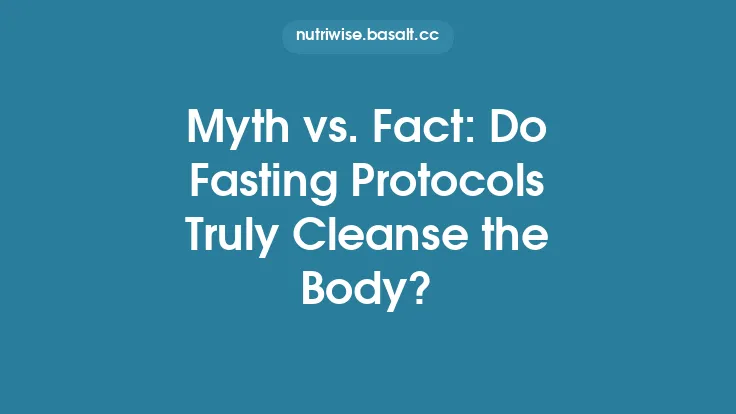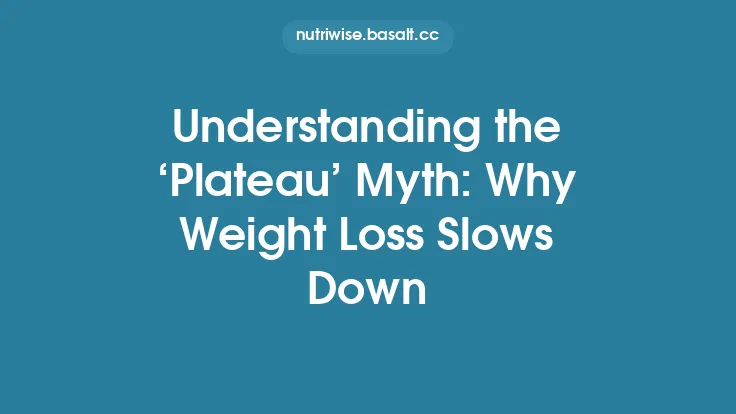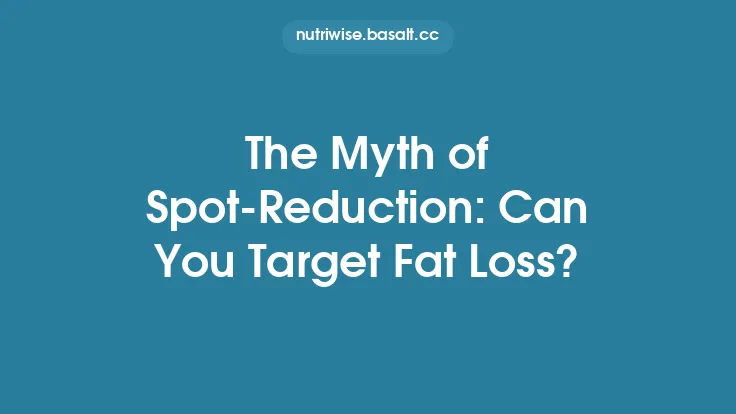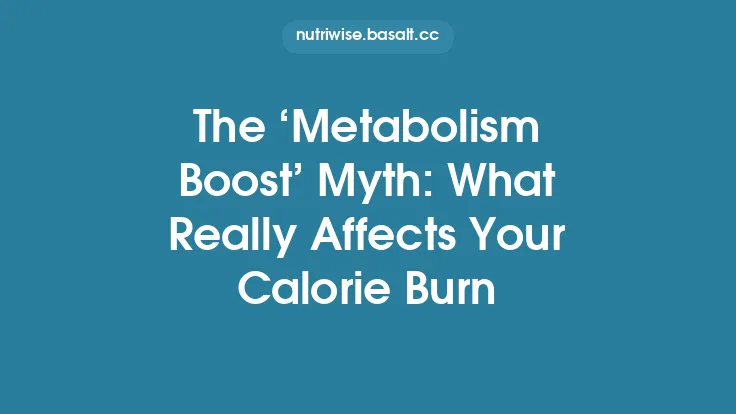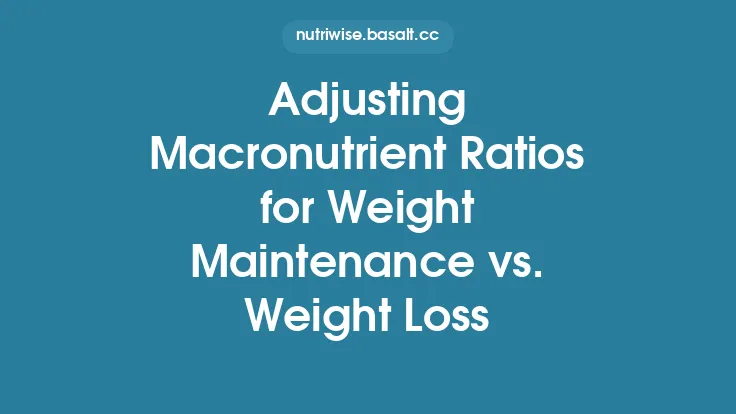Skipping meals has become a popular shortcut in the quest for a slimmer waistline. Social media posts, quick‑fix diet plans, and anecdotal success stories often tout “intermittent fasting” or “meal‑skipping” as the secret to rapid weight loss. Yet the science behind this practice is far more nuanced. In this article we dissect the myth that skipping meals automatically leads to weight loss, contrast it with the physiological facts, and provide evidence‑based guidance for anyone considering this approach.
The Core Misconception: “Less Food = Fewer Calories = Weight Loss”
At first glance, the logic seems airtight: if you eat fewer meals, you consume fewer calories, and a calorie deficit should result in weight loss. While the premise of a negative energy balance is correct, the assumption that simply omitting a meal will reliably produce that deficit ignores several critical variables:
- Compensatory Eating – The body’s hunger signals often intensify after a missed meal, leading many people to overeat later in the day or choose higher‑calorie, less‑nutritious foods.
- Metabolic Adaptation – Prolonged periods of reduced intake can trigger a slowdown in resting metabolic rate (RMR), diminishing the calorie gap you thought you created.
- Nutrient Distribution – Skipping meals can compromise the intake of essential macronutrients (protein, fiber) and micronutrients (vitamins, minerals), affecting satiety, muscle preservation, and overall health.
Thus, the “skip‑a‑meal = lose weight” narrative oversimplifies a complex interplay of hormonal, metabolic, and behavioral factors.
How the Body Regulates Energy When Meals Are Missed
1. Hormonal Responses
- Ghrelin – Known as the “hunger hormone,” ghrelin rises before meals and falls after eating. When a meal is skipped, ghrelin levels stay elevated longer, intensifying appetite and potentially prompting larger subsequent meals.
- Leptin – Produced by adipose tissue, leptin signals satiety. Short‑term meal omission does not dramatically alter leptin, but chronic energy restriction can lower leptin, reducing the feeling of fullness.
- Insulin – Skipping meals can lead to periods of lower insulin, which may improve insulin sensitivity in some individuals. However, erratic insulin fluctuations can also promote cravings for carbohydrate‑rich foods.
2. Energy Expenditure Adjustments
- Resting Metabolic Rate (RMR) – The body’s baseline calorie burn can decrease by 5–10 % after several days of reduced intake, a protective mechanism to conserve energy.
- Thermic Effect of Food (TEF) – Digesting, absorbing, and storing food consumes energy (≈10 % of caloric intake). Fewer meals mean less TEF, slightly reducing total daily energy expenditure.
- Non‑Exercise Activity Thermogenesis (NEAT) – Subconscious movements (fidgeting, posture adjustments) often decline when energy is scarce, further lowering daily calorie burn.
3. Muscle Protein Balance
Adequate protein distribution across meals is crucial for maintaining muscle mass. Skipping a protein‑rich meal can shift the body toward a net catabolic state, especially if total daily protein intake falls below ~1.2 g/kg body weight. Loss of lean tissue reduces RMR, making sustained weight loss harder.
Evidence from Clinical Research
Intermittent Fasting vs. Continuous Calorie Restriction
Multiple randomized controlled trials (RCTs) have compared time‑restricted eating (e.g., 16 h fast, 8 h feeding window) or alternate‑day fasting with traditional daily calorie restriction. Key findings include:
| Study | Design | Duration | Primary Outcome | Result |
|---|---|---|---|---|
| Harvie et al., 2013 | RCT, 2 × 2 weeks | 12 weeks | Body weight change | ~3 % weight loss, comparable to daily 25 % calorie deficit |
| Trepanowski et al., 2017 | Alternate‑day fasting vs. daily restriction | 12 months | Weight & metabolic health | Similar weight loss (~5 % of baseline) in both groups |
| Sutton et al., 2018 | Early time‑restricted feeding (eating 8 am–2 pm) | 12 weeks | Insulin sensitivity | Improved insulin sensitivity without greater weight loss than control |
Overall, when total energy intake is matched, meal‑skipping protocols do not produce superior weight loss compared with conventional calorie restriction. The primary driver remains the net energy deficit, not the timing of meals.
Short‑Term vs. Long‑Term Effects
- Short‑Term (≤ 2 weeks): Some participants experience rapid weight loss due to glycogen depletion and associated water loss. This is not true adipose tissue loss.
- Long‑Term (> 3 months): Adherence tends to wane. Studies show higher dropout rates in extreme meal‑skipping regimens, often because hunger, fatigue, or social constraints become unsustainable.
Population‑Specific Findings
- Athletes & Active Individuals: Skipping meals can impair performance, reduce glycogen stores, and increase injury risk.
- Individuals with Metabolic Disorders (e.g., Type 2 Diabetes): Irregular meal patterns may destabilize glucose control, despite potential improvements in insulin sensitivity seen in some fasting studies.
- Older Adults: Adequate protein distribution across meals is vital for preserving muscle mass; skipping meals can accelerate sarcopenia.
Common Pitfalls and Misinterpretations
- “All Calories Are Equal” vs. Nutrient Timing – While total calories dictate weight change, the source and timing of those calories influence hunger, hormone responses, and muscle preservation.
- Equating “Fasting” with “Starvation” – Controlled fasting (e.g., 12–16 h) can be safe for many, but prolonged or severe restriction (≥ 24 h without supervision) may trigger nutrient deficiencies and metabolic slowdown.
- Assuming Meal Skipping Reduces Food Cost – In practice, many people compensate by purchasing convenience foods high in sugar and fat, which can increase overall caloric intake and reduce diet quality.
- Ignoring Individual Variability – Genetic factors, sleep patterns, stress levels, and gut microbiota all modulate how a person responds to meal frequency changes.
Practical Guidelines for Those Considering Meal Skipping
| Guideline | Rationale |
|---|---|
| Aim for a modest, sustainable energy deficit (≈ 10–20 % below maintenance). | Guarantees weight loss without triggering severe metabolic adaptation. |
| Preserve protein intake (≥ 1.2 g/kg body weight) and spread it across at least two meals. | Supports muscle maintenance and satiety. |
| Choose a consistent eating window (e.g., 8–10 h) if adopting time‑restricted eating. | Helps regulate circadian rhythms and hormone cycles. |
| Monitor hunger cues and avoid “all‑or‑nothing” skipping. | Reduces risk of binge eating later. |
| Stay hydrated; water, herbal teas, and black coffee are acceptable during fasting periods. | Helps control appetite and supports metabolic processes. |
| Incorporate nutrient‑dense foods (vegetables, whole grains, healthy fats) in the meals you do eat. | Maintains micronutrient adequacy and fiber intake. |
| Track progress beyond the scale (body composition, energy levels, mood). | Provides a holistic view of health outcomes. |
| Consult a healthcare professional before starting, especially if you have chronic conditions, are pregnant, or are an elite athlete. | Ensures safety and individualized recommendations. |
When Skipping Meals Might Be Beneficial
- Controlled Time‑Restricted Eating (TRE): For individuals who naturally prefer a smaller eating window, TRE can simplify meal planning and may improve insulin sensitivity without compromising overall nutrition.
- Intermittent Fasting for Specific Health Goals: Some research suggests benefits for blood pressure, lipid profiles, and inflammatory markers, independent of weight loss. However, these effects are modest and should not replace evidence‑based medical treatment.
- Lifestyle Compatibility: If a person’s schedule makes three traditional meals impractical, a structured two‑meal pattern may be more realistic and thus more adherent.
Bottom Line: Myth vs. Fact
| Myth | Fact |
|---|---|
| Skipping meals guarantees a calorie deficit. | Deficit only occurs if total daily intake is lower than expenditure; skipping can trigger compensatory overeating. |
| Fewer meals automatically speed up weight loss. | Weight loss rate depends on overall energy balance, not meal frequency alone. |
| Skipping meals boosts metabolism. | Short‑term fasting may slightly increase fat oxidation, but prolonged skipping can lower resting metabolic rate. |
| You can lose fat without sacrificing muscle by skipping meals. | Adequate protein distribution and resistance training are essential; missing protein‑rich meals can jeopardize muscle preservation. |
| Meal skipping is a one‑size‑fits‑all solution. | Individual responses vary widely; personal health status, activity level, and preferences dictate suitability. |
Final Thoughts
Skipping meals is not a magical shortcut to a slimmer figure. The weight‑loss equation remains rooted in energy balance, but the path to achieving that balance safely and sustainably involves more than simply omitting a breakfast or dinner. Hormonal feedback loops, metabolic adaptations, nutrient timing, and personal lifestyle factors all shape the outcome.
For most people, a balanced approach—moderate calorie reduction, consistent protein intake, regular physical activity, and mindful eating—outperforms extreme meal‑skipping strategies. If you are drawn to intermittent fasting or a reduced‑meal pattern, adopt it thoughtfully: set clear nutritional goals, monitor your body’s signals, and seek professional guidance when needed.
In the end, the most reliable “myth‑busting” tool is personalized, evidence‑based planning rather than a blanket belief that fewer meals equal faster weight loss. By understanding the underlying physiology and respecting individual variability, you can make informed choices that support both your weight‑management goals and long‑term health.
